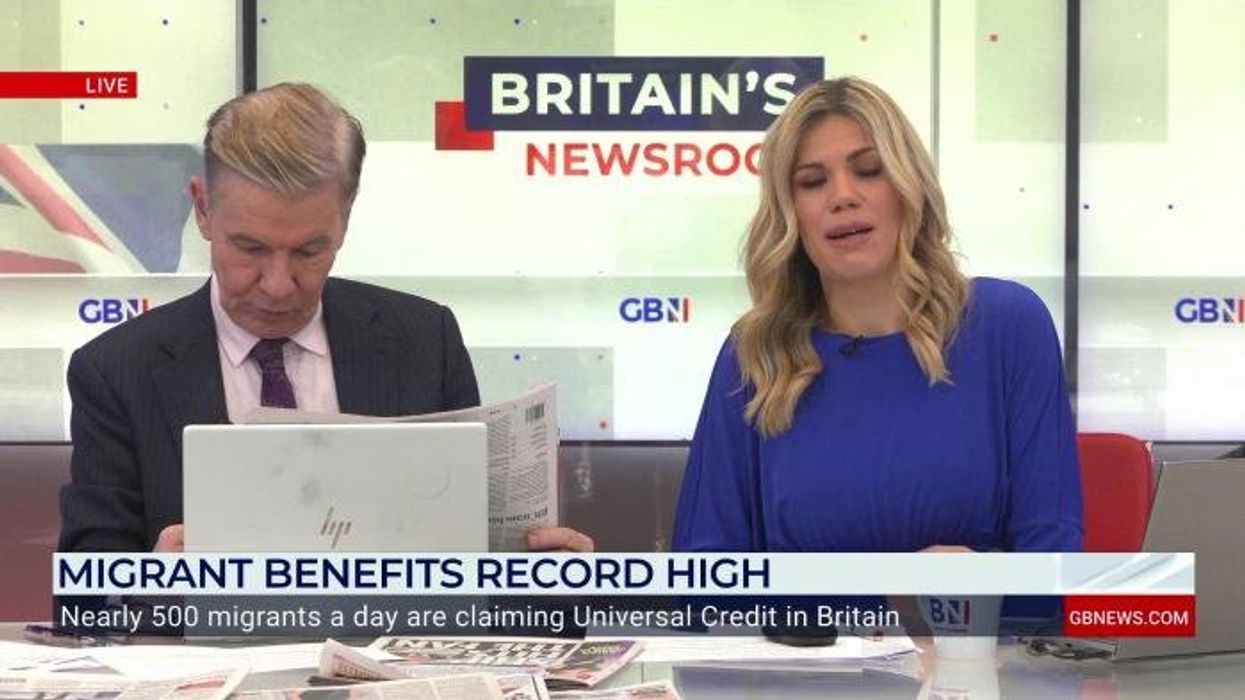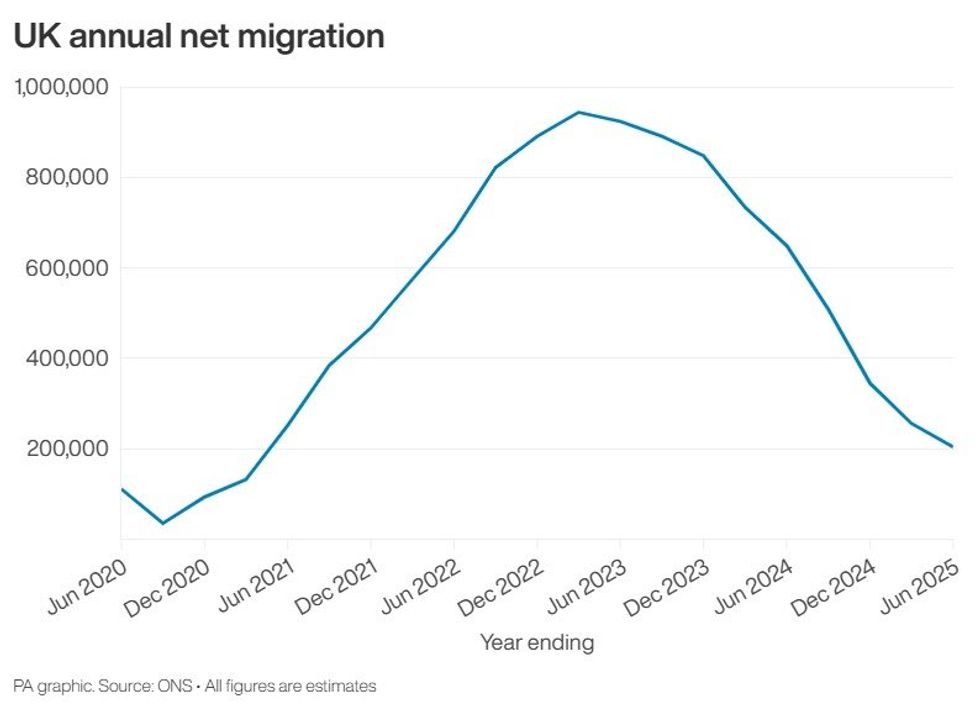New net migration figures released for Labour's first 12 months in office as asylum hotel places soar

WATCH: Nearly 500 migrants a day claiming Universal Credit in Britain
|GB NEWS

The figures have been released by the Office for National Statistics
Don't Miss
Most Read
New net migration and temporarily-housed asylum seeker figures have been released for Labour's first 12 months in office by the Office for National Statistics (ONS).
Long-term international net migration for the year ending June 2025 was 204,000.
Meanwhile, the number of asylum seekers being housed temporarily in UK hotels at the end of September was 36,273, which is up 13 per cent on the figure in June, according to Home Office data.
Some 32,059 asylum seekers were housed in UK hotels at the end of June.
TRENDING
Stories
Videos
Your Say
This number was already up eight per cent on the same point last year, but below the peak of 50,546 reached in June 2023.
Long-term net migration is around two-thirds - 69 per cent - lower than a year earlier, when, in year ending June 2024, the number was 649,000.
This is the lowest figure for any 12-month period since 2021 and is a drop of nearly 80 per cent from its 2023 peak.
Net migration is the difference between the number of people moving long-term to the country and the number of people leaving.

Long-term international net migration for the year ending June 2025 was 204,000, the lowest figure for any 12-month period since 2021, and is a drop of nearly 80 per cent from its 2023 peak
|PA/ONS
An estimated 898,000 people immigrated to the UK in the year to June while 693,000 emigrated.
In reaction to the figures, Home Secretary Shabana Mahmood said: “Net migration is at its lowest level in half a decade and has fallen by more than two-thirds under this Government.
“But we are going further because the pace and scale of migration has placed immense pressure on local communities.
“Last week, I announced reforms to our migration system to ensure that those who come here must contribute and put in more than they take out.”
A Home Office spokesman added that "furious" at the level of asylum hotels, and they "we will close every single one". There are now fewer than 200 remaining.
Mary Gregory, ONS executive director for population and census, explained that the net migration fall is due to less people "from outside the EU arriving for work and study-related reasons, with a steep decline in the number of dependants and a continued, gradual increase in levels of emigration."

Shabana Mahmood praised the ONS figures, but added: 'We are going further because the pace and scale of migration has placed immense pressure on local communities'
| PAHowever, Shadow home secretary Chris Philp said the “days of mass low-skilled immigration must end”.
“Britain cannot keep importing pressure on public services and expect the British people to absorb the cost,” he said.
“The fall in today’s figures is driven by the Conservative reforms we put in place on work visas, dependants, and students, but we need to go much further.
"Under a future Conservative government, only those who make a real contribution can stay permanently, and only British citizens will be eligible for benefits funded by British taxpayers.”
More British nationals are estimated to have left the UK in the year to June (252,000) than moved to the country (143,000).
Similarly, EU-plus nationals recorded a higher right of emigrating from the UK (155,000) than immigrating (85,000).
This has been countered by a positive net migration for non-EU-plus nationals, with more moving to the UK long-term (670,000) than leaving (286,000).
The number of non-EU-plus nationals arriving in the UK has fallen 37 per cent year on year, while the number leaving has risen by 20 per cent.
Sunder Katwala, director of British Future, said: "Net migration is falling, with today’s figures likely to show another drop, yet our political debate hasn’t caught up.
"As numbers move closer to ‘normal’ levels, politicians can’t just keep competing over who will cut them further.
"The risk for Keir Starmer’s Government, which is promising to get a grip on numbers, is that constant crisis messaging only reinforces the public belief that asylum and immigration are out of control."
The 13 per cent increase in the number of asylum seekers being housed temporarily in UK hotels comes as Shabana Mahmood vowed to end the use of hotels for illegal migrants.
The Home Secretary introduced major reforms to the asylum policy, including returning refugees to their home country as soon as it is deemed "safe", and making refugees wait up to 20 years before being able to apply for permanent settlement in the country, up from five years.
However, this year has already seen over 39,300 migrants cross the Channel. That's compared to 38,816 in the whole of 2024.
This figure lines with the trajectory of 2022, comfortably Britain's record year for illegal migration.
Our Standards: The GB News Editorial Charter










